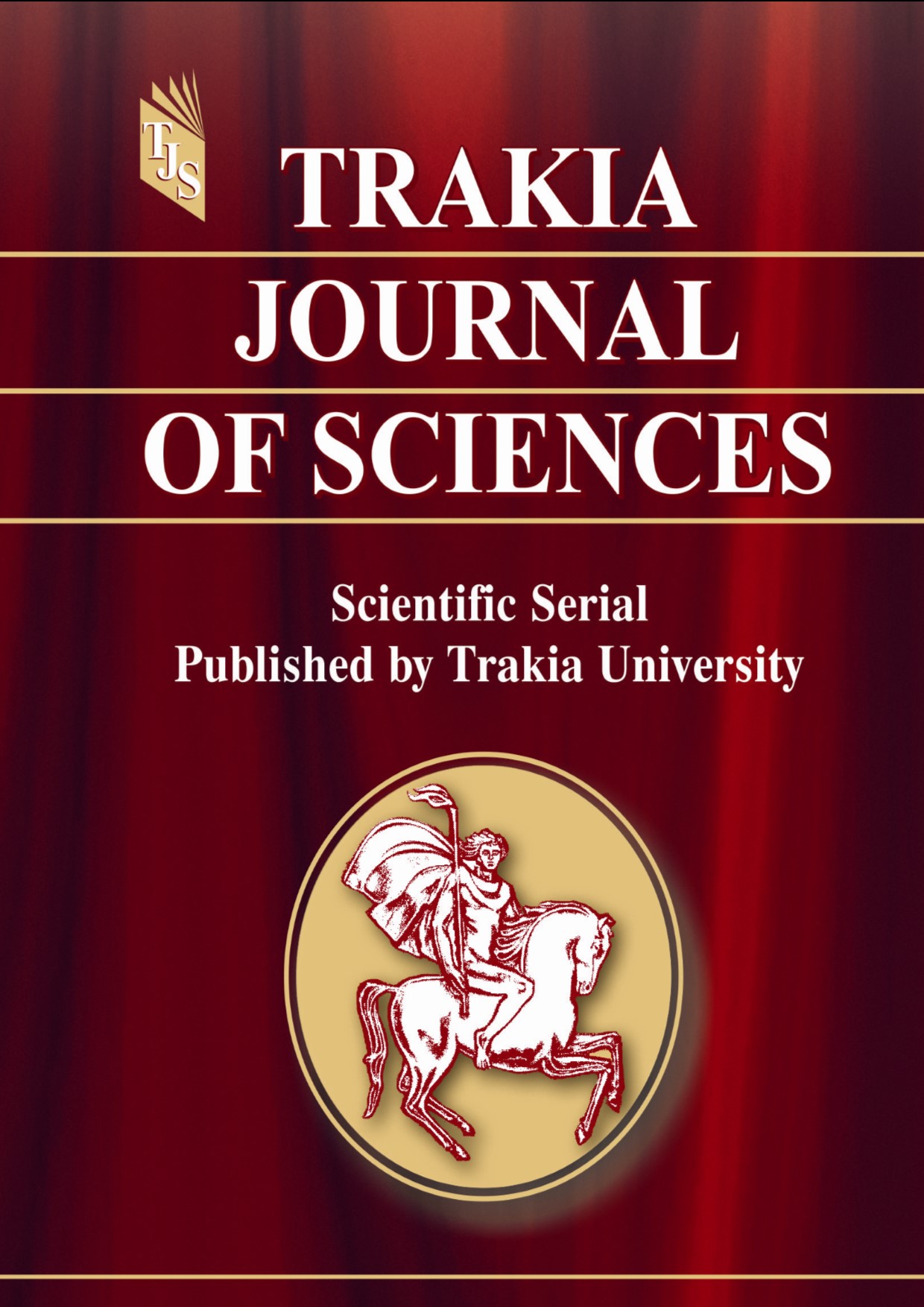ARTIFICIAL INTELLIGENCE IN LANGUAGE EDUCATION IN TÜRKİYE: POTENTIAL CHALLENGES
DOI:
https://doi.org/10.15547/tjs.2024.s.01.013Keywords:
Artificial Intelligence, English Learning, German Learning, Language Learning ChallengesAbstract
This study examines the potential challenges that language learners might encounter during the process of AI-supported foreign language learning (English and German) in Türkiye. Despite the potential benefits of AI technologies in language learning, it is obvious that the use of these technologies also presents certain disadvantages and challenges. AIM: This study aims to address the potential challenges and adverse effects of AI-supported language learning applications, offering recommendations on how these issues can be overcome. METHOD: The study uses the document analysis method to examine possible problems with AI-supported language learning in English and German languages in Türkiye. RESULTS: Technological infrastructure limitations, high costs, reduced human interaction, and data security concerns could hinder the effective and secure use of AI-supported language learning applications. CONCLUSION: Strategies should be developed to ensure the learning experiences of students, enabling safer and more effective use of AI technologies.
References
Zawacki-Richter, O., Marín, V. I., Bond, M., and Gouverneur, F. Systematic review of research on artificial intelligence applications in higher education – where are the educators? International Journal of Educational Technology in Higher Education, 16(1), 1-27, 2019.
Luckin, R., Holmes, W., Griffiths, M., and Forcier, L. B. Intelligence Unleashed: An argument for AI in Education. Pearson., 2016. Retrieved from https://www.pearson.com/content/dam/one-dot-com/one-dot-com/global/Files/about-pearson/innovation/Intelligence-Unleashed-Publication.pdf
Koutsopoulos, K. C., Doukas, K., and Kotsanis, Y. (Eds.). Handbook of research on educational design and cloud computing in modern classroom settings. IGI Global, 2017.
Hwang, G. J. Definition, framework and research issues of smart learning environments-a context-aware ubiquitous learning perspective. Smart Learning Environments, 1, 1-14, 2014.
Barrett, A., and Pack, A. Not quite eye to AI: student and teacher perspectives on the use of generative artificial intelligence in the writing process. International Journal of Educational Technology in Higher Education, 20(1), 59, 2023.
Cheung, S. K., Kwok, L. F., Phusavat, K., and Yang, H. H. Shaping the future learning environments with smart elements: challenges and opportunities. International Journal of Educational Technology in Higher Education, 18, 1-9, 2021.
De la Vall, R. R. F., and Araya, F. G. Exploring the benefits and challenges of AI-language learning tools. International Journal of Social Sciences and Humanities Invention, 10(01), 7569-7576, 2023.
Spector, J. M. Smart learning environments: Concepts and issues. In Society for Information Technology & teacher education international conference (pp. 2728-2737). Association for the Advancement of Computing in Education (AACE), 2016, March.
Bernard, H. R., Wutich, A., and Ryan, G. W. Analyzing qualitative data: Systematic approaches. SAGE publications, 2016.
Chen, X., Xie, H., and Hwang, G. J. A multi-perspective study on artificial intelligence in education: Grants, conferences, journals, software tools, institutions, and researchers. Computers and Education: Artificial Intelligence, 1, 100005, 2020.
Leslie, D. Understanding artificial intelligence ethics and safety: A guide for the responsible design and implementation of AI systems in the public sector. The Alan Turing Institute, 2019.
Rütti-Joy, O., Winder, G., and Biedermann, H. Building AI literacy for sustainable teacher education. Zeitschrift Für Hochschulentwicklung, 18(4), 175-189, 2023. https://doi.org/10.21240/zfhe/18-04/10.
Popenici, S. A., and Kerr, S. Exploring the impact of artificial intelligence on teaching and learning in higher education. Research and practice in technology enhanced learning, 12(1), 22, 2017.
Marshall, C., and Rossman, G. B. Designing qualitative research. Sage publications, 2014.
Merriam, S. Qualitative research: A guide to design and implementation san fransisco: John Willey & Sons Inc., 2009.
Chen, X., Zou, D., Xie, H., Cheng, G., and Liu, C. Two decades of artificial intelligence in education. Educational Technology & Society, 25(1), 28-47, 2022.
Pedro, F., Subosa, M., Rivas, A., and Valverde, P. Artificial intelligence in education: Challenges and opportunities for sustainable development, 2019.
Ay, S., and Kılıç, T. The Geographical Digital Divide: Urban-Rural, Regional and Gender Inequalities of Digital Transformation in Turkey. Journal of Geopgraphy, (46), 111-122, 2023
Dağlı, İ. Digital Divide at the Regional Level in Turkey: An Empirical Study with EDAS and MAIRCA Methods. KMU Journal of Social and Economic Research, 24(42), 359-386, 2022.
Eşki, B., and Tarhan, Ç. Digital Transformation of Education in Turkey: A GIS-Based Analysis. Dokuz Eylül University The Journal of Graduate School of Social Sciences, 24 (Special Issue), 322-336, 2022. https://doi.org/10.16953/deusosbil.1189601
Turkish Statistical Institute. Bilgi Toplumu İstatistikleri. Ankara: Türkiye İstatistik Kurumu Yayınları, 2020.
Karoğlu, A. K., Bal, K., and Çimşir, E. Digital Transformation of Education in Turkey in Society 5.0. Journal of University Research, 3(3), 147-158, 2020.
Andersson, A., and Grönlund, Å. A conceptual framework for e‐learning in developing countries: A critical review of research challenges. The electronic Journal of information systems in developing Countries, 38(1), 1-16, 2009.
Moorhouse, B. L. (2024). Beginning and first-year language teachers’ readiness for the generative AI age. Computers and Education: Artificial Intelligence, 6, 100201, 2024.
Kohnke, L., Moorhouse, B. L., and Zou, D. Exploring generative artificial intelligence preparedness among university language instructors: A case study. Computers and Education: Artificial Intelligence, 5, 100156, 2023.
Lodge, J. M., Thompson, K., and Corrin, L. Mapping out a research agenda for generative artificial intelligence in tertiary education. Australasian Journal of Educational Technology, 39(1), 1-8, 2023.
McDonald, N., Johri, A., Ali, A., and Hingle, A. Generative artificial intelligence in higher education: Evidence from an analysis of institutional policies and guidelines. arXiv preprint arXiv:2402.01659, 2024.
Chiu, T. K. The impact of Generative AI (GenAI) on practices, policies and research direction in education: A case of ChatGPT and Midjourney. Interactive Learning Environments, 1-17, 2023.
Çavuş, M. N. A Review on Artificial Intelligence Based Measurement and Evaluation in Education. International Journal of English for Specific Purposes (JOINESP) 2(1), 39-54, 2024.
Kuddus, K. Artificial intelligence in language learning: Practices and prospects. Advanced Analytics and Deep Learning Models, 1-17, 2022.
Wang, X., Liu, Q., Pang, H., Tan, S. C., Lei, J., Wallace, M. P., and Li, L. What matters in AI-supported learning: A study of human-AI interactions in language learning using cluster analysis and epistemic network analysis. Computers & Education, 194, 104703, 2023.
optaş, A. Ş. Yapay Zekânın Yabancı Dil Öğretiminde Kullanımı: Almanca Örneği. Contemporary Research in Language Education, 77, 2024.
Dörnyei, Z. Innovations and challenges in language learning motivation. Routledge, 2020.
Başkaya, F., and Karacan, H. The Impact of Artificial Intelligence-Based Systems on Personal Data Privacy: A Study on Chatbots. Journal of Information Technologies, 15(4), 481-491, 2022.
Brown, M., and Klein, C. Whose data? Which rights? Whose power? A policy discourse analysis of student privacy policy documents. The Journal of Higher Education, 91(7), 1149-1178, 2020.
Vincent-Lancrin, S., and Van der Vlies, R. Trustworthy artificial intelligence (AI) in education: Promises and challenges, 2020.
Berendt, B., Littlejohn, A., and Blakemore, M. AI in education: Learner choice and fundamental rights. Learning, Media and Technology, 45(3), 312-324, 2020.
Saaida, M. B. AI-Driven transformations in higher education: Opportunities and challenges. International Journal of Educational Research and Studies, 5(1), 29-36, 2023.
Çetin, M., and Aktaş, A. Artificial Intelligence and Future Scenarios in Education. OPUS International Journal of Society Researches, 18 (Educational Sciences Speciial Issue), 4225-4268, 2021.
Halstead, J. M., and Taylor, M. J. Learning and teaching about values: A review of recent research. Cambridge journal of education, 30(2), 169-202, 2000.

Downloads
Published
Issue
Section
License
Copyright (c) 2025 Trakia University

This work is licensed under a Creative Commons Attribution-NonCommercial 4.0 International License.


